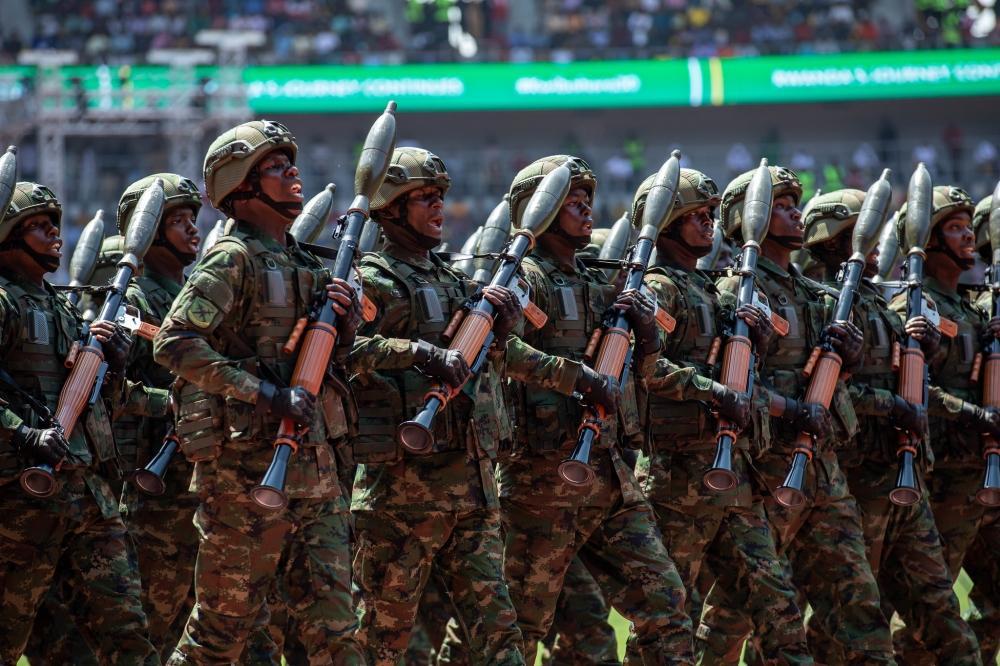Alice Uwagaga Urusaro Karekezi
Africa-Press – Rwanda. Every year on July 4th, Rwandans gather to commemorate Kwibohora—Liberation Day. It is more than a date on the calendar; it is a national mirror.
A reflection of memory, sacrifice, hope, and responsibility. It marks not only the end of one of the darkest chapters in our history, but also the beginning of a determined journey toward dignity, unity, peace, and self-determination.
On this day, we must ask ourselves: What makes our flag fly?
Someone once wrote: “Our flag does not fly because of the wind. It flies with the last breath of every soldier who died defending it.”
Yes, it flies with every Rwandan who believed in the ideals it represents—freedom, justice, peace, and the promise of a better tomorrow.
It flies with the quiet courage of civilians who sheltered, fed, and supported the liberation movement in countless unseen ways.
It flies with the solidarity of friends across Africa and beyond, who stood with us in our saddest hours.
It flies with every song that dreamed of a liberated Rwanda and every dance that defiantly celebrated its hope—even in exile.
I remember how Girubuntu by Jeanne Kaligirwa opened hearts in Kigali and at Fête de l’Humanité in Paris; how Tarihinda by Cécile Kayirebwa inspired the formation of Isano and stirred young Rwandans in Kinshasa.
Turaje by Isamaza, Humura Rwanda Nziza by Kamaliza—these were more than songs. They were anthems of resilience.
In July 1994, we gathered at Le Trianon in Paris—not to forget, but to affirm life. To resist despair. Artists like Amarebe n’Imena, Sentore, Muyango, Imitari, and Nyiranyamibwa breathed life back into grieving souls.
They were joined by Manu Dibango, Papa Wemba, Bruce Clarke, Ben Belinga, and the “Afrique-sur-Seine” community to affirm our collective will to live—as the RPF/RPA pushed forward against all odds.
Our flag also flies with the pain that survivors still carry—those who lost families, homes, and limbs, yet refused to lose hope. Their dignity, resilience, and will to live form the quiet, enduring heartbeat of our nation.
Liberation Day is deeply personal. I remember a conversation with my father, long after the guns had fallen silent. Pointing to the flag above a school, he said: “This flag doesn’t fly because of the wind. It flies because we, as a people, never gave up. Tubeho neza mu Rwanda!”
Indeed, our flag flies because we chose life—and chose peace. Not merely as the absence of war, but as a foundation for healing, development, and justice.
Today, that flag waves above a Rwanda rebuilt through resilience. It carries more than memory—it carries responsibility.
We now live in a Rwanda where peace and security are not distant aspirations but everyday realities. Children go to school. Families sleep without fear. Farmers work their land. Women walk freely in their communities.
This stability is no accident. It is the product of deliberate, people-centered policies and the unwavering vigilance of our Rwanda Defence Force (RDF) and security institutions.
In Rwanda, security is not just the work of soldiers. It is the architecture of peace. It is built on reconciliation, social cohesion, justice, and the rule of law. It is practiced through dialogue, protected by our communities, and anchored in dignity.
Liberation gave us security; security now sustains our peace.
We owe this not only to those who gave their lives, but to those who still stand guard while we sleep. Liberation was a beginning—but peacebuilding has been the long, patient labor that followed.
As we mark 31 years since Liberation, we honor the values that continue to shape Rwanda: resilience, unity, reconciliation, and self-determination. Liberation is not only a memory—it is a living legacy. It is carried forward by every Rwandan committed to preserving and expanding the gains of freedom.
At the center of Rwanda’s transformation is a leader who has redefined what it means to serve. President Paul Kagame has guided Rwanda not only toward recovery but toward renewal. His vision of a dignified, self-reliant Rwanda continues to resonate across Africa. His leadership affirms that sovereignty is not a gift—it is a responsibility.
As he once reminded us:
“We cannot decry external interference while simultaneously creating the very conditions that invite it… Sovereignty is not only about guarding borders; it is about taking full responsibility for our own security and stability.”
That responsibility means securing peace not only through force but through justice, inclusion, and dignity for all. True security is inseparable from true peace. It is the presence of rights, opportunity, and trust.
Rwanda’s story is not isolated—it is woven into Africa’s broader narrative of liberation and transformation. As we reflect on our journey, we must also ask: What must happen for Africa to prosper in peace?
Africa must move beyond responding to crises and begin shaping its own security agenda. We need frameworks rooted in African realities and guided by African priorities. As President Kagame rightly said, “Security is not just the absence of violence—it is the presence of dignity.” Africa’s collective security must serve collective dignity.
So, as we celebrate Liberation Day, let it be more than a moment of remembrance. Let it be a recommitment—to unity, hard work, compassion, and courage.
Liberation is an ongoing responsibility. It is not only about reclaiming what was lost—it is about building what is still to come.
Our flag flies because we remember.
Our flag flies because the struggle for dignity, freedom, peace, and sovereignty never truly ends.
A luta continua. The struggle continues.
Source: The New Times
For More News And Analysis About Rwanda Follow Africa-Press






